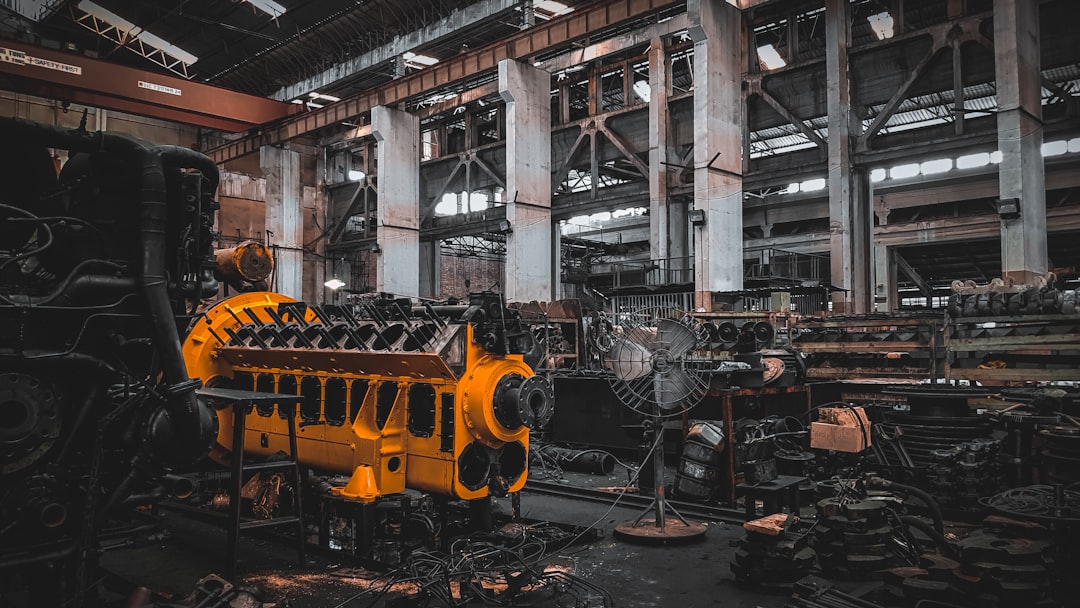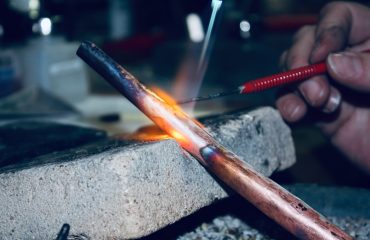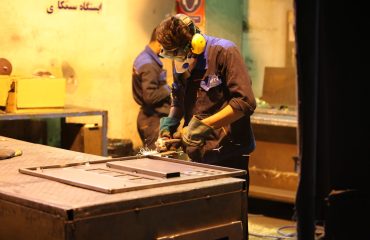body {
font-family: sans-serif;
line-height: 1.6;
}
h1, h2, h3 {
color: #333;
}
code {
background-color: #f0f0f0;
padding: 2px 4px;
border-radius: 4px;
}
Industrial machinery relies heavily on efficient and robust piping systems. From transporting vital fluids and gases to managing pressure and temperature, pipes are the circulatory system of many industrial processes. Understanding the various types of pipes, their applications, and crucial safety and maintenance practices is paramount for ensuring operational efficiency and preventing costly downtime.
Types of Pipes Used in Industrial Machinery
The choice of pipe material depends heavily on the transported medium, operating pressure, temperature, and the corrosive nature of the environment. Common types include:
- Steel Pipes: The workhorse of industrial piping, offering high strength and durability. Carbon steel is widely used for its cost-effectiveness, while stainless steel provides superior corrosion resistance for applications involving chemicals or high temperatures. Different grades of steel are chosen based on the specific application’s demands.
- Plastic Pipes (PVC, HDPE, CPVC): Lightweight, corrosion-resistant, and often cost-effective, plastic pipes are ideal for applications involving less demanding pressure and temperature requirements. HDPE (High-Density Polyethylene) is particularly durable and suitable for handling chemicals.
- Copper Pipes: Known for their excellent corrosion resistance and thermal conductivity, copper pipes are often used in applications requiring high purity or where heat transfer is crucial. However, they are more expensive than steel.
- Cast Iron Pipes: These offer high strength and durability, making them suitable for high-pressure applications. However, their weight and susceptibility to corrosion can limit their use.
- Fiberglass Reinforced Pipes (FRP): Lightweight and highly corrosion-resistant, FRP pipes are ideal for handling aggressive chemicals and are often used in harsh environments.
Applications of Industrial Piping in Different Industries
The applications of industrial piping are vast and varied, depending on the specific industry. Some examples include:
- Chemical Processing: Pipes transport various chemicals, solvents, and reactants throughout the process, requiring careful material selection to prevent corrosion and leaks.
- Oil and Gas Industry: High-pressure pipelines are essential for transporting crude oil, natural gas, and refined products over long distances. Materials must withstand extreme pressures and temperatures.
- Power Generation: Pipes handle steam, water, and other fluids in power plants, requiring materials that can tolerate high temperatures and pressures.
- Food and Beverage Processing: Sanitary piping systems are crucial for maintaining hygiene and preventing contamination. Materials like stainless steel are preferred for their ease of cleaning and corrosion resistance.
- Pharmaceutical Manufacturing: Cleanroom piping systems are essential to avoid contamination. Materials must be biocompatible and easily sterilizable.
Safety Considerations in Industrial Pipework
Safety is paramount when working with industrial piping systems. Potential hazards include:
- High Pressure: Failures in high-pressure systems can lead to catastrophic consequences. Regular inspections, pressure testing, and safety valves are crucial.
- Hazardous Materials: Pipelines transporting toxic or flammable substances require stringent safety protocols, including leak detection systems and emergency shutdown mechanisms.
- Corrosion: Corrosion can weaken pipes, leading to leaks or ruptures. Regular inspections and appropriate corrosion protection measures are essential.
- Thermal Burns: Hot pipes can cause severe burns. Insulation and safety barriers are necessary to protect personnel.
- Proper Installation and Maintenance: Incorrect installation or inadequate maintenance can lead to leaks, failures, and safety hazards. Qualified personnel should always handle installation and maintenance tasks.
Maintenance and Inspection of Industrial Piping Systems
Regular maintenance and inspection are vital for preventing failures and ensuring the longevity of industrial piping systems. This includes:
- Visual Inspections: Regular visual checks for signs of corrosion, leaks, damage, or wear and tear.
- Pressure Testing: Periodic pressure testing to verify the integrity of the system and identify potential weaknesses.
- Non-Destructive Testing (NDT): Techniques like ultrasonic testing, radiographic testing, and magnetic particle testing can detect internal flaws without damaging the pipe.
- Corrosion Monitoring: Monitoring corrosion rates to determine the effectiveness of corrosion protection measures.
- Leak Detection: Implementing leak detection systems to quickly identify and address leaks before they escalate.
- Regular Cleaning: Depending on the application, regular cleaning of the pipes may be necessary to remove buildup or contaminants.
Advanced Technologies in Industrial Pipework
Technological advancements are continuously improving the efficiency, safety, and reliability of industrial piping systems. These include:
- Smart Pipes: Sensors embedded in pipes can monitor pressure, temperature, flow rate, and other parameters, providing real-time data for predictive maintenance and improved operational efficiency.
- Advanced Materials: The development of new materials with enhanced properties, such as higher strength, corrosion resistance, and temperature tolerance, is constantly expanding the possibilities of industrial pipework.
- 3D Printing of Pipes: Additive manufacturing techniques are being explored for creating customized pipes with complex geometries and improved performance characteristics.
- Improved Joining Techniques: Advanced welding and joining methods ensure stronger and more reliable connections, reducing the risk of leaks and failures.
- Digital Twins: Virtual models of piping systems allow for simulations and analysis, helping to optimize design, predict potential problems, and improve maintenance strategies.
In conclusion, the efficient and safe operation of industrial machinery is heavily reliant on well-designed, properly maintained, and regularly inspected piping systems. By understanding the different types of pipes, their applications, safety considerations, and maintenance practices, industries can minimize downtime, reduce costs, and ensure the safe operation of their facilities.
Tags: Industrial Piping, Pipework, Industrial Machinery, Pipe Maintenance, Piping Systems




